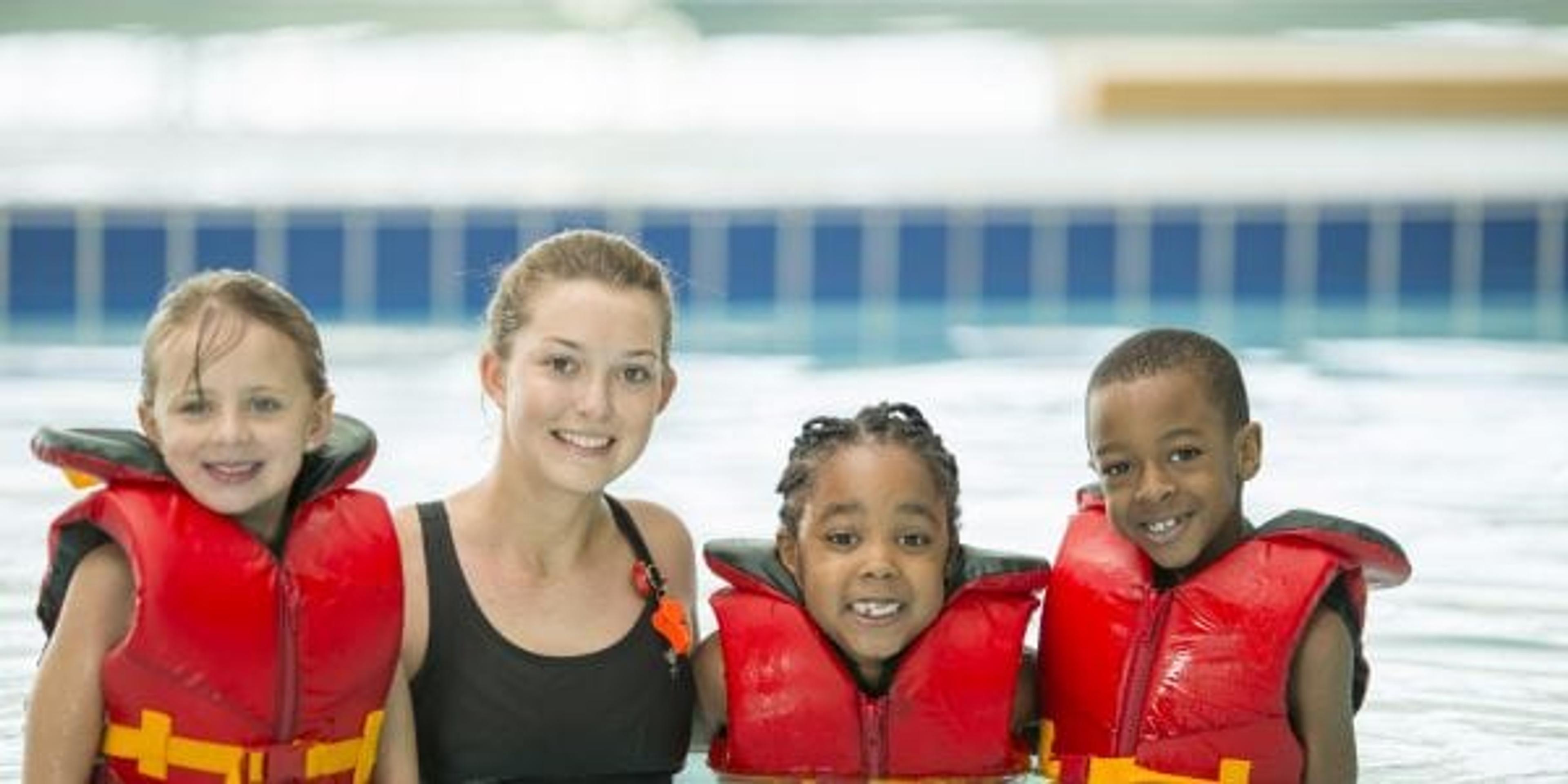8 Tips for Staying Safe at the Pool
T. Jann Caison-Sorey
| 3 min read

The pool is a fun and refreshing place to spend a hot summer day—but it can also cause serious injuries and fatal accidents. On average, 10 people drown each day in the U.S., with a majority of victims being children. As part of June’s National Safety Month efforts, the National Safety Council aims to reduce harm and improve health within communities by educating the public on how to stay safe in and around bodies of water. When it comes to pools, keep these safety precautions in mind:
- Learn CPR – Cardiopulmonary resuscitation is a life-saving skill consisting of chest compressions and artificial ventilation that can support and potentially restore breathing to a drowning victim. It’s a proven technique that helps to create a safer environment for everyone. Certified CPR training is available by local and national organizations including the American Red Cross and the American Heart Association.
- Take Swim Lessons – Swimming is a great sport and cardiovascular exercise that can also save lives. Formal swomming lessons reduce the likelihood of childhood drowning by 88 percent. Training is available for children 12 months of age and older, with classes designed for both parent and child.
- Secure the Area – When a pool’s not in use, it’s critical to secure the area with a sturdy and appropriate barrier. This can include a four-sided isolation fence with a self-latching gate, or, for above ground pools, locking the cover and/or removing steps. Pool owners can install warning signs, or an alarm system designed to sound off when anyone’s nearby.
- Cover Drains – Drains, filters and pool pumps are all potentially hazardous. In some cases, a drain’s suction is so strong it can pull swimmers under. Families can prevent accidents and injuries by investing in a drain cover that’s properly-fitted and federally compliant.
- Shower First – It’s important to rinse off before stepping into any pool. A 1-minute shower helps rid the body of germs on skin and hair, which protects the individual and other swimmers. Additionally, children and adults should always go to the restroom before entering the pool. If they have diarrhea or another waterborne illness, they should avoid swimming all together.
- Provide Supervision and Stay Alert – Adults should stay in close-proximity to their little ones (to see and hear) during water-based activities. Lifeguards and pool monitors are often responsible for watching large groups, meaning accidents may be overlooked. Be sure to provide appropriately-sized floatation devices/life jackets and keep children in areas designated for their age group, height or swim-level.
- Avoid Swallowing Pool Water – Believe it or not, chlorine does not kill all germs. Pool water can host microscopic parasites and other bacteria which can be potentially harmful to swimmers who ingest it. This can lead to a recreational water illness (RWI), which often causes infection and/or diarrhea.
- Have a First Aid Kit Handy – Always have a first aid kit nearby to address minor injuries. They often contain packing bandages, gauze, band-aids, adhesive tape, antiseptic and non-latex gloves. Remember: Sprains, minor burns or localized area allergic reactions can be addressed at an urgent care center. For serious emergencies, dial 9-1-1 and request immediate medical assistance. Be sure to provide clear and accurate information regarding the incident and location.
Why is This So Important?
Survivors of near drowning are treated in emergency rooms, but more than half are hospitalized or transferred for further care. They can often experience brain damage, which causes memory problems, learning disabilities or permanent loss of basic functions. The goal is to prevent such outcome by being prepared, enforcing safety and supervision at the pool.
If you found this post helpful, you might also enjoy:
About the author: Dr. T. Jann Caison-Sorey is a senior medical director at Blue Cross Blue Shield of Michigan.
Photo credit: FatCamera





